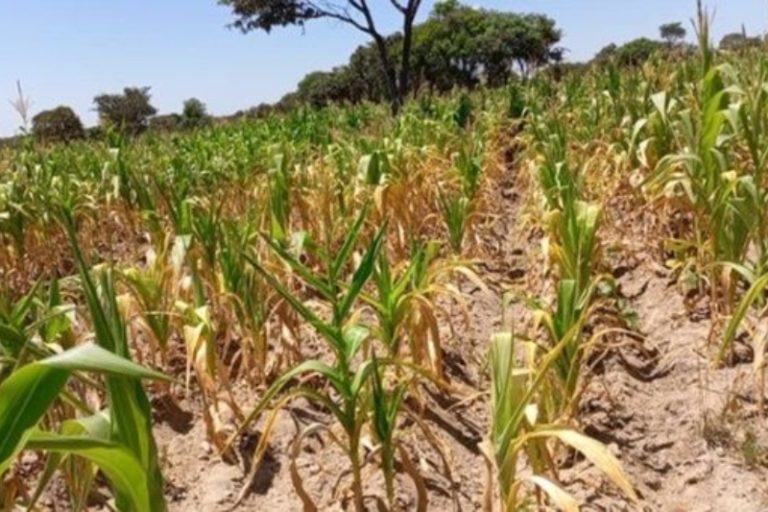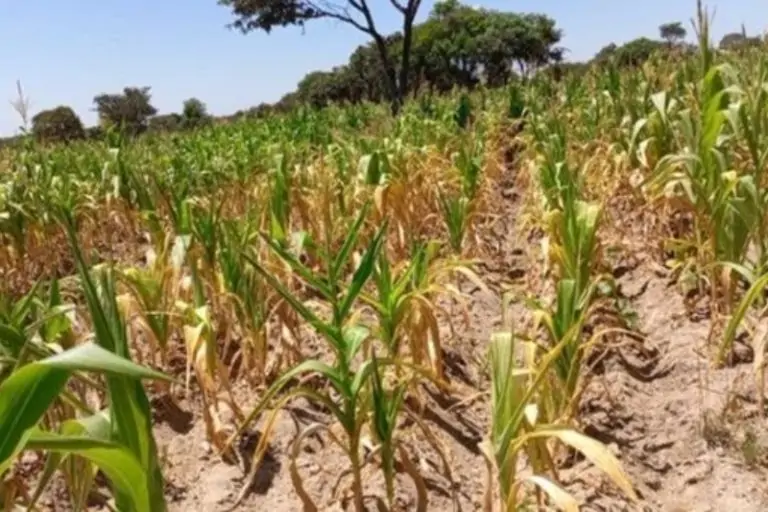

zambia declares national emergency as drought takes hold
Zambian President Hakainde Hichilema has declared a state of national disaster and emergency due to a devastating drought that has engulfed the country. Currently, 84 out of 116 districts in Zambia are experiencing severe drought conditions, causing immense hardships for the agricultural sector and food security.
The usual rainy season, which typically extends from October to March, abruptly ended in January this year, leaving the nation grappling with an extended period of inadequate rainfall. As a result, crops on fully seeded farms have been decimated by the relentless drought.
One farmer, Edner Soko, shared the grim reality of his situation, stating, “I have eight hectares of corn and two or three hectares of peanuts, but since there is no rain, the corn and peanuts are dead.” This sentiment resonates with many smallholder farmers, as maize, a crucial staple crop that relies heavily on regular rainfall, has failed to mature. Consequently, a significant portion of these farmers have been unable to harvest their crops, leading to concerns about their livelihoods and the ability to meet their basic needs.
The impact of the drought has been widespread, particularly in the south, east, and west regions of Zambia. Farmer Jacob Soko explains, “Since we no longer have food, almost all of Zambia, especially the south, east, and west, has nothing. The news often reports that the northern part of Zambia receives some rain, but on our side, it is evident that the President’s declaration of a national disaster is justified. This is a true national disaster.”
Approximately 70% of Zambians depend on small-scale farming for their primary food source, underscoring the gravity of the situation. Yotam Mkandawire, the executive secretary of the Grain Traders Association of Zambia, acknowledges that the country remains food secure for now but highlights the potential challenges after the next harvest. He states, “We are still food secure as a country, probably until the end of the next harvest, but we anticipate difficulties thereafter. It is crucial that our country responds effectively to the current crisis we are facing.”
In response to the dire circumstances, various measures have been implemented to alleviate the impacts of the drought, which not only affect food security but also have implications for energy production. Recognizing the severity of the situation, President Hichilema has appealed for assistance from the international community to address this pressing issue and help Zambia navigate through this challenging period.
Kenyan sprint star Ferdinand Omanyala finished second at the opening race of the Diamond League in Xiamen, China, on Saturday.…
The incessant rains have caused flooding in Durban and its neighboring areas. It has disrupted several core areas, with a…
Cross-border activity suffered vast disruption when the new ban started at midnight Thursday with its direct impact on border checkpoints…
South African Bank fined R700,000 after determining the institution misrepresented a credit product as an investment opportunity. Following its December…
EA Sports shows that Toronto Maple Leafs will stop their 58-year title wait by beating the Colorado Avalanche in seven…
Pope Francis, the first Latin American pope of the Roman Catholic Church, passed away in the morning of his 88th…
This website uses cookies.